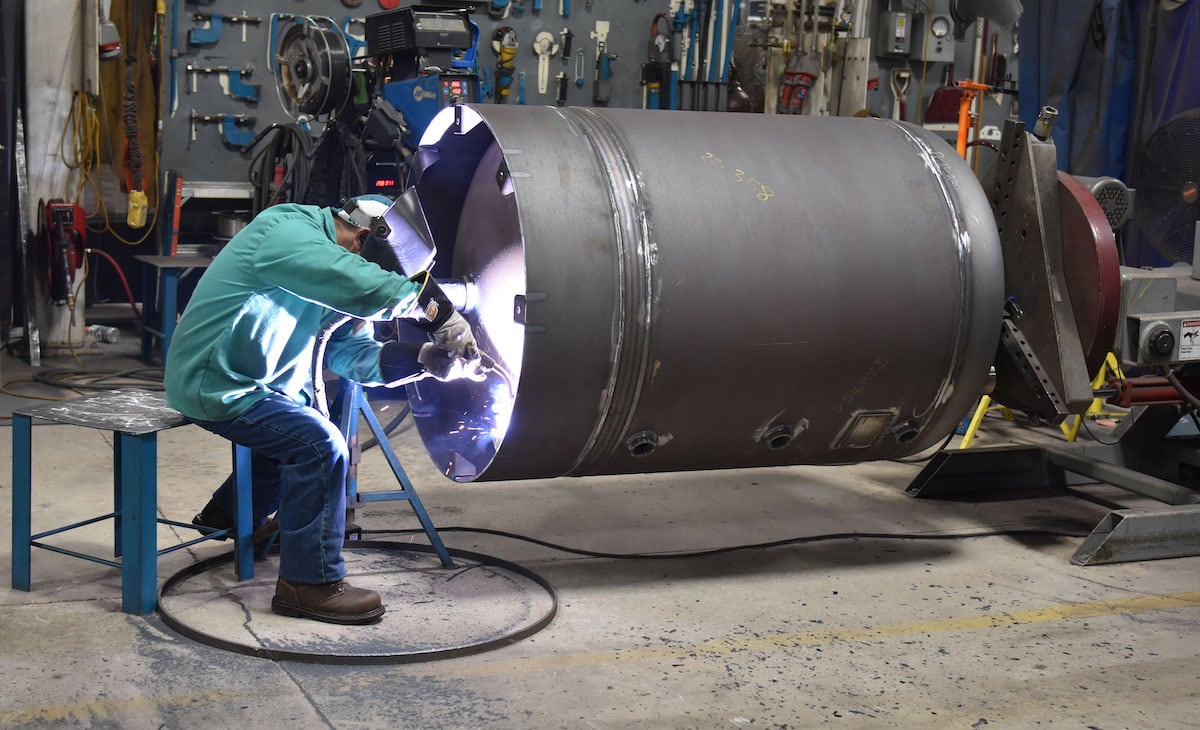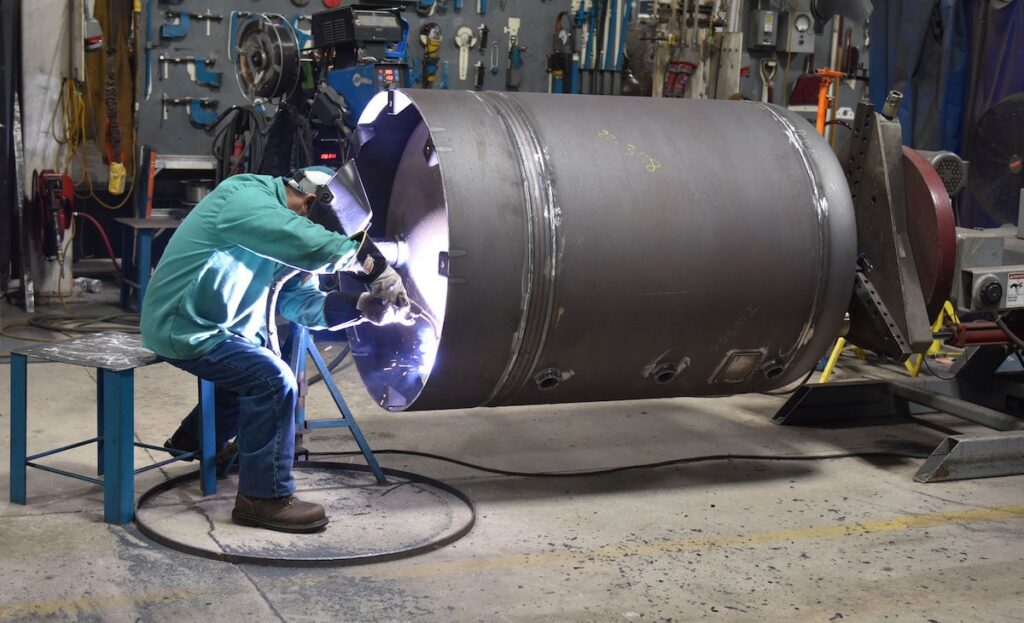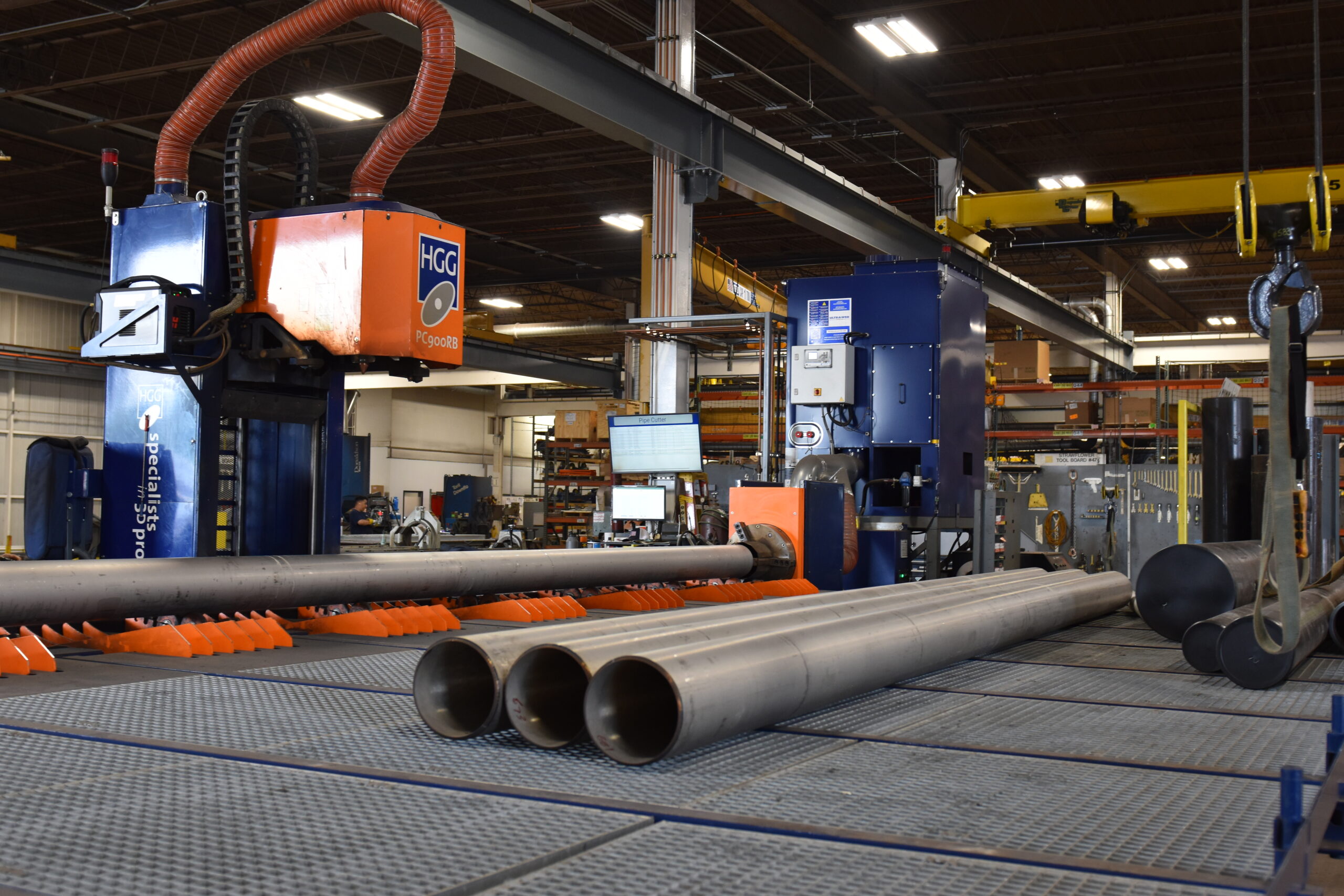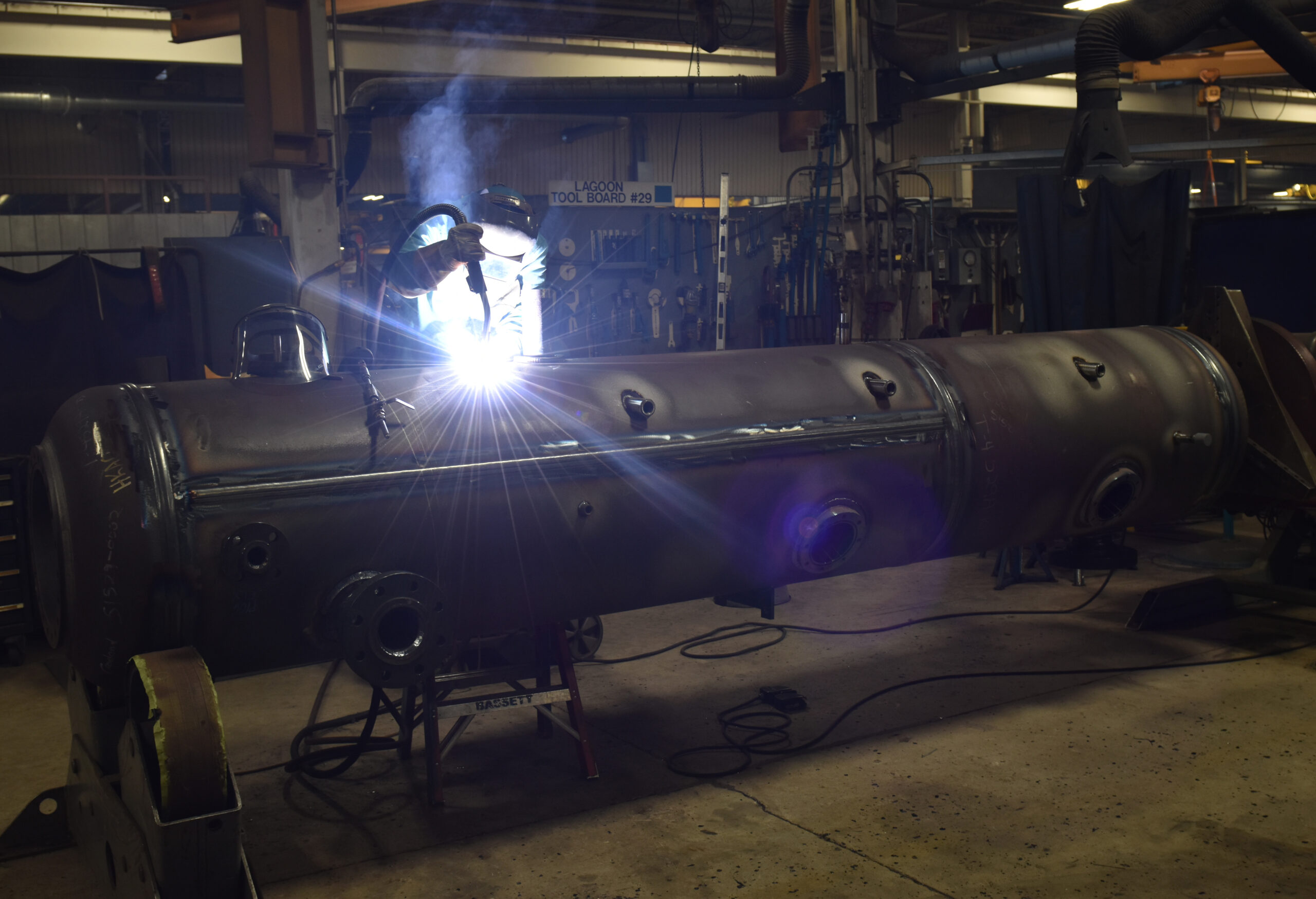Pressure vessels are vital in various industries, from oil and gas to chemical processing and industrial refrigeration. These vessels are crucial in storing gases and liquids under varying pressures and temperatures. Their design and fabrication require meticulous attention to detail to ensure safety, reliability, and adherence to rigorous industry standards.
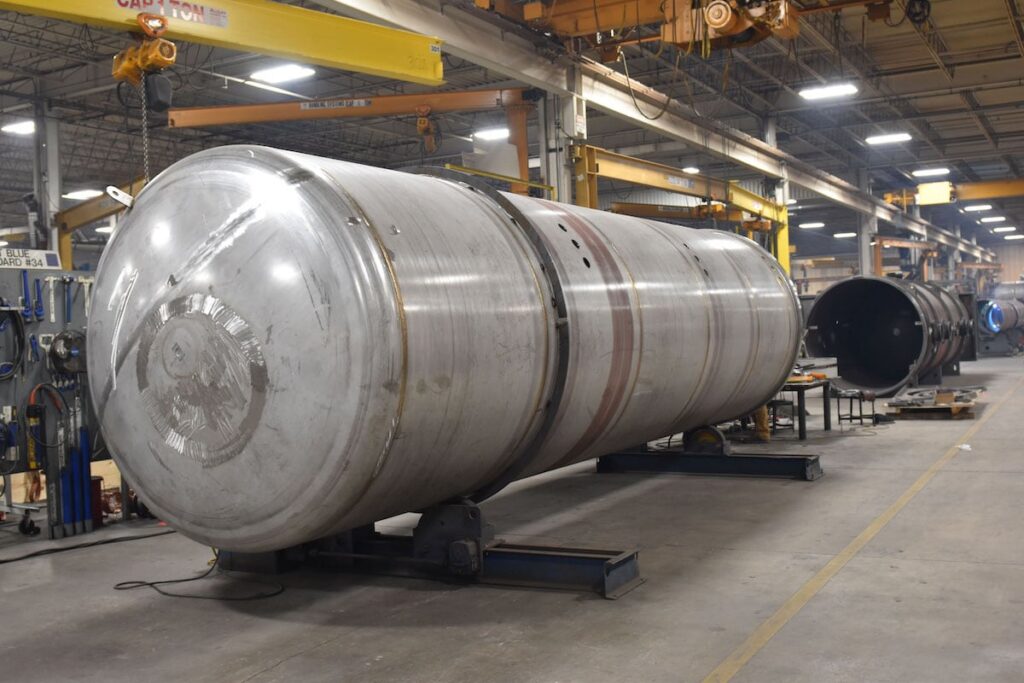
Importance of Quality Pressure Vessel Fabrication
Pressure vessels are subject to intense operational conditions, including high pressures and temperatures. The quality and reliability of a pressure vessel directly impacts the safety of personnel, the environment, and overall operational efficiency. Proper fabrication techniques are crucial to prevent catastrophic failures, such as leaks, ruptures, and explosions. By adhering to stringent fabrication standards and codes, we can ensure that pressure vessels are built to withstand extreme conditions, reducing the risk of accidents and optimizing productivity.
Key Considerations in Pressure Vessel Fabrication
- Design compliance: Pressure vessel fabrication starts with comprehensive design and engineering. It is essential to adhere to industry codes and standards, such as the ASME Boiler and Pressure Vessel Code, to guarantee that the vessel meets all necessary safety requirements. Design considerations include material selection, vessel geometry, weld joint design, and reinforcement requirements.
- Material Selection: The choice of materials is critical in pressure vessel fabrication. Factors such as strength, corrosion resistance, and temperature resistance must be carefully evaluated to determine the most suitable materials. Common materials include carbon steel, stainless steel, alloy steel, and non-ferrous metals like aluminum and titanium.
- Welding Procedures: Welding is fundamental to pressure vessel fabrication. Qualified welders must employ appropriate welding techniques and procedures to ensure the integrity and strength of the weld joints.
- Quality Control and Testing: Rigorous quality control measures are essential throughout the fabrication. Non-destructive testing techniques, such as radiography, ultrasonic testing, and liquid penetrant testing, are employed to identify any defects or weaknesses in the vessel. These inspections help ensure that the vessel meets the required standards and will perform reliably in demanding conditions.
The Pressure Vessel Fabrication Process
- Material preparation: The selected materials are cut, formed, and machined to the required dimensions and finish. Careful attention is paid to removing any surface imperfections or contaminants that could affect the welding process.
- Welding and assembly: Skilled welders join the components using appropriate welding techniques, such as shielded metal arc welding (SMAW), gas tungsten arc welding (GTAW), or submerged arc welding (SAW). Welding procedures are strictly followed, and welders must be qualified to meet the necessary standards.

- Heat treatment: Some pressure vessels may undergo heat treatment processes, such as stress relieving or post-weld heat treatment, to improve their mechanical properties and relieve residual stresses induced during welding.
- Surface treatment and coating: Pressure vessels are often subjected to surface treatments, such as shot blasting or pickling, to remove any scale, rust, or contaminants. Coatings or linings are applied to protect against corrosion and chemical attacks.
- Final Inspection and Testing: The completed pressure vessel undergoes a series of inspections and tests to ensure compliance with design specifications and industry standards. These may include non-destructive testing, hydrostatic testing, and functional testing.
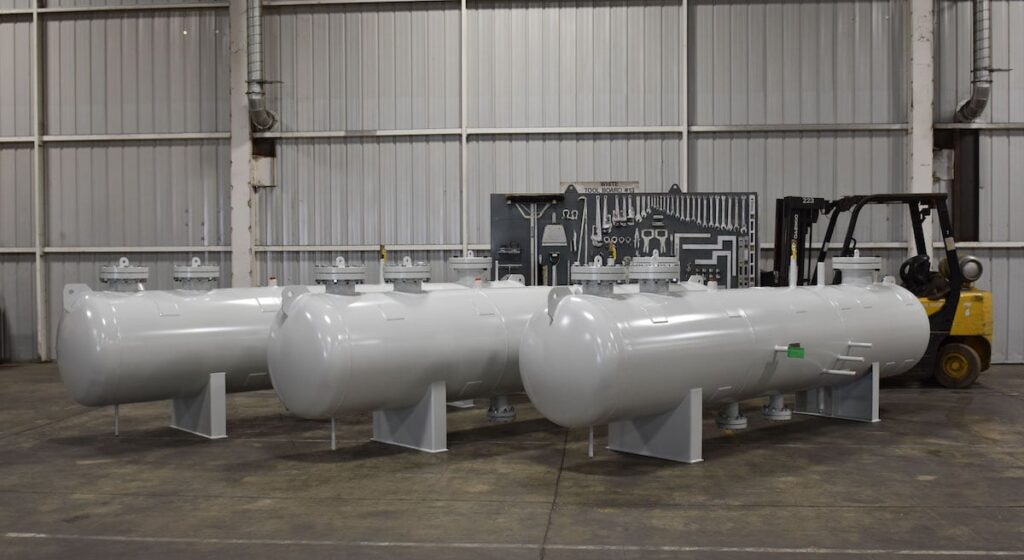
Pressure Vessel Fabrication Partner
Several key factors should be considered when seeking a pressure vessel fabrication partner to ensure a successful and reliable collaboration. First and foremost, expertise and experience in pressure vessel fabrication are crucial. Look for a partner with a proven track record in the industry, possessing the necessary certifications and qualifications. The ability to adhere to stringent quality control standards and compliance with relevant codes and regulations is paramount. Additionally, a reliable fabrication partner should offer comprehensive engineering capabilities, including design, analysis, and optimization of pressure vessels. Effective communication and collaboration throughout the project are essential, so choose a partner with excellent project management skills and a commitment to transparent and open dialogue. Finally, consider a fabrication partner that offers a range of value-added services, such as testing, inspection, and maintenance support, to ensure the long-term performance and integrity of the pressure vessels.
Work with Bassett Mechanical for Custom Pressure Vessel Fabrication
Pressure vessel fabrication is a complex and critical process that demands expertise, attention to detail, and compliance with rigorous standards. By prioritizing safety, adhering to industry codes, and employing stringent quality control measures, manufacturers can deliver pressure vessels that meet the highest standards of reliability and performance. As industries continue to evolve and demand increasingly robust equipment, mastering the art of pressure vessel fabrication remains paramount to ensure the safety of personnel, protect the environment, and drive efficient operations.
Contact us today to learn more about our pressure vessel offerings and expertise.
Are you looking for something else? Learn more about our additional metal fabrication solutions.

